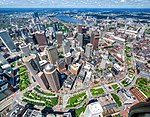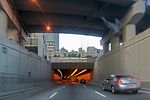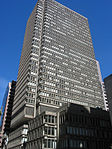Christian Science Center- Belvidere/ Dalton
The Belvidere/Dalton tower is a planned 60-story, 699' tower on the grounds of Boston's Christian Science Center adjacent to the Prudential Tower complex on a small, triangular open space owned by the Christian Science Center above the entrance ramps to the complex's parking garage. There will also be a mid-rise, 285' tower built across the street on a current parking lot. The taller tower will be of mixed hotel/residential usage with first-floor retail, while the mid-rise tower will be fully residential with first-floor retail as well. The buildings have been designed by Henry Cobb of Pei Cobb Freed who also designed Hancock Place, Boston's tallest building. Upon completion, the Belvidere/Dalton tower will be the third-tallest tower in Boston. The hotel and residences will be run by the Four Seasons Hotels and Resorts, making Boston one of only a few cities with two or more Four Seasons Hotels.
Excerpt from the Wikipedia article Christian Science Center- Belvidere/ Dalton (License: CC BY-SA 3.0, Authors).Christian Science Center- Belvidere/ Dalton
Oliver Street, Boston Downtown Boston
Geographical coordinates (GPS) Address Nearby Places Show on map
Geographical coordinates (GPS)
| Latitude | Longitude |
|---|---|
| N 42.355777777778 ° | E -71.052083333333 ° |
Address
One International Place
Oliver Street 100
02110 Boston, Downtown Boston
Massachusetts, United States
Open on Google Maps










